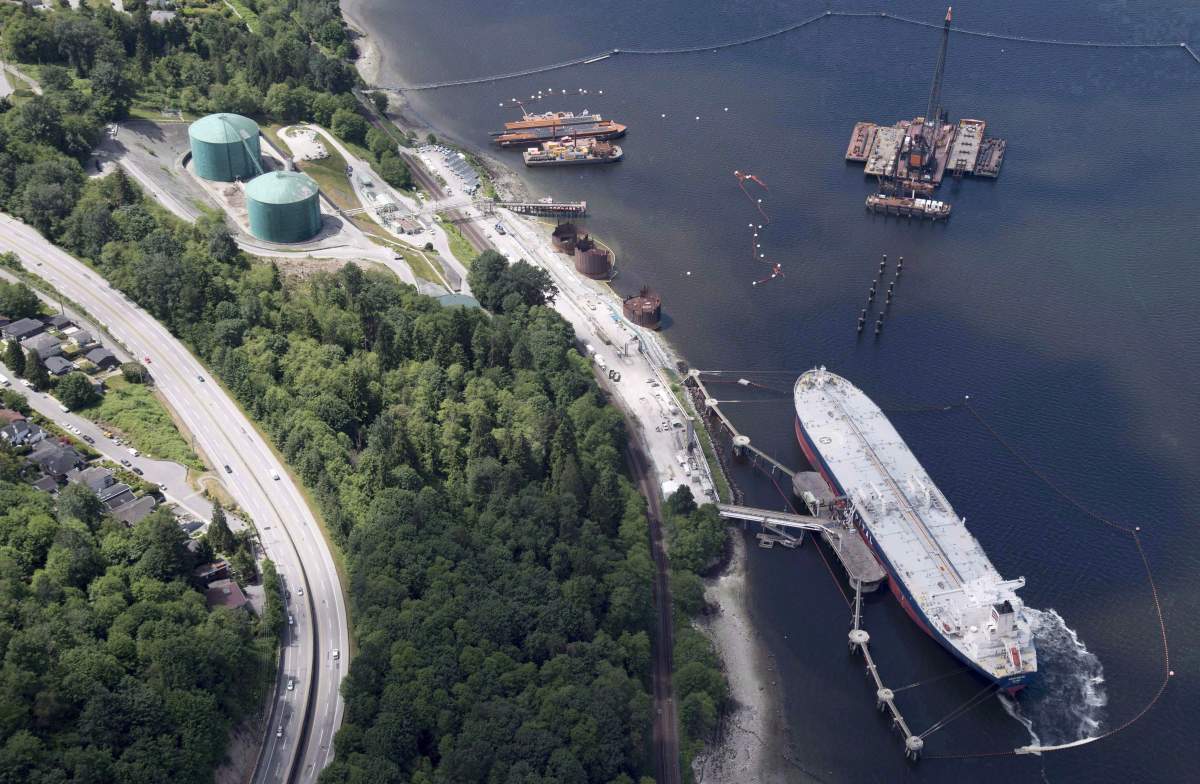Trans Mountain’s Ian Anderson was shocked when the federal court ruled against the pipeline expansion, he told reporters on Wednesday. But he’s not letting his surprise shake his confidence.

The Federal Court of Appeal ruled in August that the National Energy Board’s review of the pipeline expansion was too flawed for the federal government to base its decision on.
“It was a shock that rippled through the company and rippled through industry and governments,” the president and CEO of Trans Mountain Corp., said.
The longtime pipeline executive spoke to the media for the first time since the project, previously owned by Kinder Morgan Canada, became a crown corporation.
Despite the uncertainty around the project in the time since, Anderson is sure it will be built.
He said he doesn’t have an updated cost on the $7.4-billion project but told a small number of journalists in Calgary that time was money, suggesting the final bill will be higher.

Get breaking National news
LISTEN: Kinder Morgan Canada President Ian Anderson joins The Morning News to discuss the Trans Mountain sale to the federal government
In the same stroke, he committed to using taxpayers’ money wisely after the federal government purchased the existing line and the expansion.
“At the time this asset is sold. Months or years from now, I want to make sure it’s as valuable as possible and that the Canadian public has gotten a return on this investment.”
Anderson also said the timeline for construction is delayed.
“Our last official completion date was the end of 2020. There’s no doubt that has slipped,” he said. “How much that’s slipped? I won’t know for some months when I have some certainty of when we can re-start.”
Anderson said it will take approximately 30 months for the project to be completed. If there are approvals in 2019, that could mean oil flowing through the line in 2022.
However, before any of the construction can restart, consultations will have to begin. Anderson is supportive of NEB consultations on marine impact and more engagement with Indigenous groups.
“Going forward, we’ll have the benefit and the proponent, in this case, or me, being together in those consultations to have a full understanding of what the accommodation or mitigation measures may be,” Anderson said.


Comments
Want to discuss? Please read our Commenting Policy first.